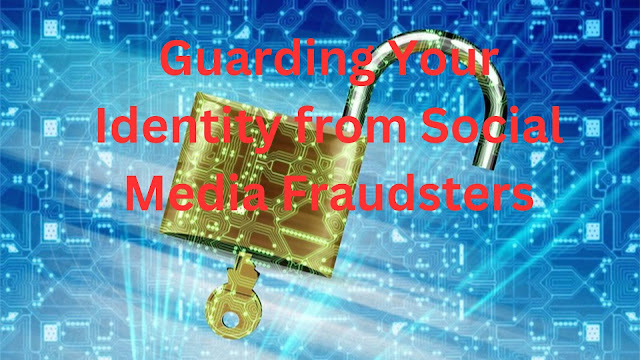Still, your social media networks are an important part of your life, If you ’re like utmost people. You presumably partake a lot of particular information with them, and that makes you a target for cyber culprits. Social media swindles are one of the numerous ways these culprits try to exploit people online. In this blog post, we will bandy how to cover yourself from social media swindles. We'll also give some tips for how to deal with it if you do get scammed.
Social Media swindles
Social Media swindles come in numerous different forms. They can be anything from fake contests and comps to fraudulent donation requests. Cybercriminals are always coming up with new ways to fiddle people, so it’s essential to be apprehensive of the rearmost swindles. One of the stylish ways to cover yourself is to install cybersurfer security extensions like guardio. Also, noway click on links or give out particular information unless you ’re sure you know who you ’re dealing with. Be especially cautious of any social media regard asking for fiscal information ordonations.However, it presumably is, If commodity seems too good to be true.
When it comes down to it, the stylish way to cover yourself from social media swindles is by using common sense and being conservative about what you partake online. Flash back that cyber culprits are experts at disguising themselves and their intentions. However, it presumably is n’t, If commodity does n’t feel right.
still, there are a many effects you can do, If you do find yourself the victim of a social media fiddle. First, report the incident to the social media platform you were using. This will help them probe and take action against the person responsible. You should also change your watchwords and sequestration settings on all of your social media accounts, just to be safe. Eventually, you can file a complaint with the Federal Trade Commission( FTC).
By following these tips, you can cover yourself from social media swindles and other online pitfalls. Flash back to be conservative about what you partake online, and noway vacillate to report suspicious exertion to the applicable authorities.
The first step in guarding yourself from social media swindles is to be apprehensive of the different types of swindles that live. Then are some of the most common social media swindles
Phishing swindles
Phishing is a type of fiddle where culprits shoot emails or dispatches pretending to be from a licit company or association. They will frequently try to get you to click on a link or download an attachment that will install malware on your computer.
Profile Cloning swindles
This type of fiddle involves culprits creating fake social media biographies that look like someone you know. They will also friend or follow you in order to gain your trust. Once they've your trust, they will try to exploit it by asking for plutocrat or particular information.
Pretender swindles
An pretender fiddle is when a felonious pretends to be someone differently in order to get plutocrat or particular information from you. For illustration, they may pretend to be a charity association and ask for donations. Or, they may pretend to be someone you know and ask for your bank account number so they can “ transfer ” plutocrat to you.
Malware swindles
Malware is a type of software that can be used to damage your computer or steal your information. Malware swindles involve culprits transferring you links or attachments that will install malware on your computer if you click on them.
Now that you know some of the most common types of social media swindles, you can start to cover yourself from them. Then are some tips
- - no way click on links or attachments from people you do n’t know.
- - If someone you do n’t know sends you a communication.
- - Be suspicious of friend or follow requests from people you do n’t know.
- - Don't give out particular information, similar as your address, phone number, or bank account number, to anyone you do n’t know. still, communicate your original police department,
- - If you suppose you may have been scammed.
By following these tips, you can help cover yourself from social media swindles. still, indeed if you're careful, there's always a chance that you could still get scammed. However, the stylish thing to do is to communicate your original police department and report the incident, If this happens.







0 Comments